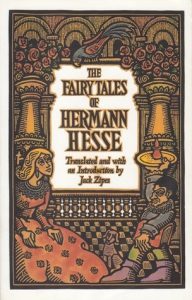Title: The Homecoming
Author: Harold Pinter
First published January 1, 1964
96 pages, Paperback
ISBN: 9780802151056 (ISBN10: 0802151051)
Rating: 3.71
Overview
In Harold Pinter’s The Homecoming, the arrival of Teddy and his wife Ruth to his childhood home in London sets off a series of power struggles within the family. As tensions rise, Ruth finds herself at the center of the family’s battle for dominance.
With Pinter’s signature dark humor and piercing insight into human relationships, The Homecoming is a gripping exploration of family dynamics and the lengths we will go to protect our own.
About the Author
Harold Pinter, a multi-talented English writer, actor, director, and political activist, left an indelible mark on modern theater. He received the Nobel Prize for Literature in 2005, a testament to his immense influence.
Pinter’s love of the arts began in his teenage years in London, where he acted in school plays and wrote poetry. He began his professional career in 1951 by touring Ireland and then acted in repertory companies throughout England for twelve years, using the stage name David Baron in the late 1950s.
Pinter’s writing career spanned over fifty years and included twenty-nine original stage plays, poetry, one novel, short fiction, essays, speeches, and letters. He also adapted many of his plays for film and wrote screenplays for adaptations of others’ works.
Pinter directed almost fifty stage, television, and film productions and acted extensively in radio, stage, television, and film productions of his own and others’ works.
Pinter’s plays often explored conflicts among characters who struggled for verbal and territorial dominance while grappling with their own pasts. His works were known for their theatrical pauses and silences, comedic timing, irony, and menace.
They raised complex issues of individual identity oppressed by social forces, language, and memory. Although Pinter had not initially intended to write plays about political subjects, he began to do so in the mid-1980s, reflecting his own political interests and changes in his personal life.
This shift prompted additional critical debate about Pinter’s politics.
Pinter was recognized with numerous awards, including the Tony Award for Best Play in 1967, BAFTA awards, the French Légion d’honneur, and 20 honorary degrees. His plays and political activism were the subject of extensive critical commentary.
His name has even entered the English language as an adjective, used to describe a particular atmosphere and environment in drama: “Pinteresque.” Pinter passed away from liver cancer on December 24, 2008, and was buried at Kensal Green Cemetery in North West London. Despite his frail health, he continued to act on stage and screen until his final role in 2006.
Editoral Review
The Homecoming by Harold Pinter is a dark and intense play that delves into the themes of family, identity, and power dynamics. Pinter, a British playwright who was known for his unconventional writing style and his exploration of the human psyche, created this work in 1964, and it remains a classic in the theatre canon.
Set in a suburban London home, the play begins with the arrival of Teddy, a philosophy professor who has been living and working in America for the past six years. He brings with him his wife, Ruth, whom his family has never met before.
As the play unfolds, tensions rise, secrets are revealed, and the power dynamics between the family members and Ruth become increasingly complex and disturbing. The characters in The Homecoming are deeply flawed and complex, with each one hiding their underlying desires and fears beneath a veneer of social etiquette.
The patriarch of the family, Max, is a cantankerous old man who delights in berating his sons, Lenny and Joey, and manipulating the situation to his advantage. Lenny, the middle son, is a smooth-talking and menacing presence in the home, while Joey is a womanizer who is constantly looking for his next conquest.
Ruth, the newcomer to the family, is a fascinating character, as she juggles the expectations and desires of each member of the family while retaining a quiet sense of mystery and self-possession. Her interactions with Teddy, her husband, are fraught with tension and ambiguity, and the play never fully resolves the nature of their relationship.
Pinter’s writing style is masterful, as he uses silence and subtext to convey as much meaning as the dialogue itself. The tension in the play is palpable, as the characters circle each other like predators, waiting for the opportune moment to strike.
The play is a commentary on power dynamics, gender roles, and the human desire to belong, but it is also a deeply unsettling exploration of the darker aspects of the human psyche. One of the strengths of The Homecoming is the way that it leaves so much to the imagination of the audience.
The play is rife with ambiguity and open-ended questions, which allows the viewer to draw their own conclusions about the motives and desires of the characters. This ambiguity also makes the play feel relevant and fresh, even decades after its initial publication.
However, one weakness of the play is that it can be difficult to follow at times, as the characters’ motivations and desires are often obscured by Pinter’s elliptical writing style. The play also contains moments of graphic violence and misogyny, which may be disturbing for some viewers.
Overall, The Homecoming is a powerful and thought-provoking play that explores complex themes and characters with nuance and depth. It is a masterful work of theatre that remains relevant and impactful, even over half a century after its initial publication.
It is recommended for fans of dark and unconventional dramas, as well as those interested in exploring the complexities of human relationships and power dynamics. On a scale of one to five, this reviewer would give the play a 4.5, based on its quality of writing, character development, pacing, and themes.



